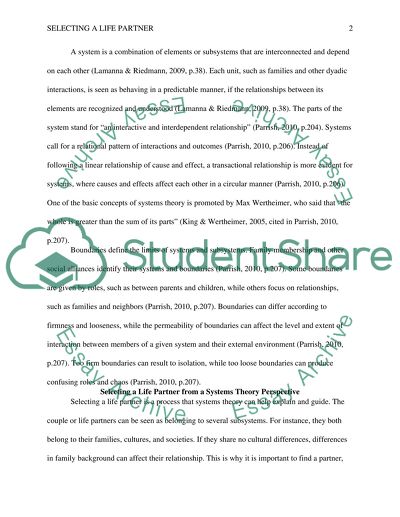Selecting a Life Partner from a Systems Theory Perspective Essay. Retrieved from https://studentshare.org/sociology/1444326-selecting-a-life-partner
Selecting a Life Partner from a Systems Theory Perspective Essay. https://studentshare.org/sociology/1444326-selecting-a-life-partner.


